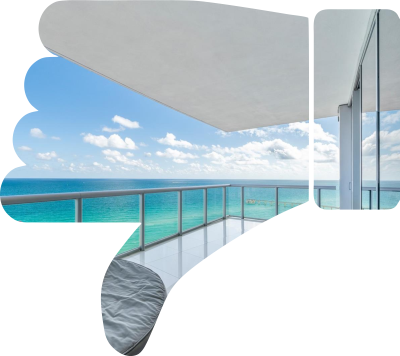

| Credit Score | Minimum Down Payment |
|---|---|
| 680 to 699 | 25% |
| 700 to 719 | 20% |
| 720 or higher | 15% |
| 740 to 759 | 15% |
| 760 or higher | 15% |
| Credit Score | Minimum Down Payment |
|---|---|
| 680 to 699 | + 1.500% |
| 700 to 719 | + 0.625% |
| 720 to 739 | + 0.250% |
| 740 to 759 | + 0.115% |
| 760 or higher | – |


The minimum loan amount is $100,000.00, and the maximum generally is $3,000,000.00. Higher loan amounts are on a case-by-case basis.
DSCR home loans can be used to purchase your next home or refinance your current mortgage. There are two types of refinancing options. Rate & term refinance is often used by homeowners to get a lower interest rate and more affordable monthly mortgage payments, or you can get a cash-out to refinance, which allows you to pull equity out of your home and convert it into cash.
Yes you can however, requirements can vary among lenders. For example, if you can demonstrate a consistent and stable income through your DSCRs, you may be eligible for a DSCR loan.
Keywords: DSCR loans, DSCR loan, non qm mortgage lenders, non qm mortgage, DSCR mortgage, no income verification loans, self employed mortgage lenders, what is a DSCR loan, DSCR loan requirements, non qm mortgages, no income verification loan, DSCR mortgage loan, no income verification mortgage loans, DSCR mortgage loans, DSCR home loans, best DSCR mortgage lenders, DSCR lenders, loans with no income verification, no income verification home loans, fake DSCR for loan, DSCR loans florida, DSCR mortgage lenders, DSCR loan lenders, non-qm mortgage lenders, non qm mortgage brokers, business DSCR loans, DSCR loans for self employed, 12 month DSCR mortgage, dscr loans near me, dscr loan calculator.